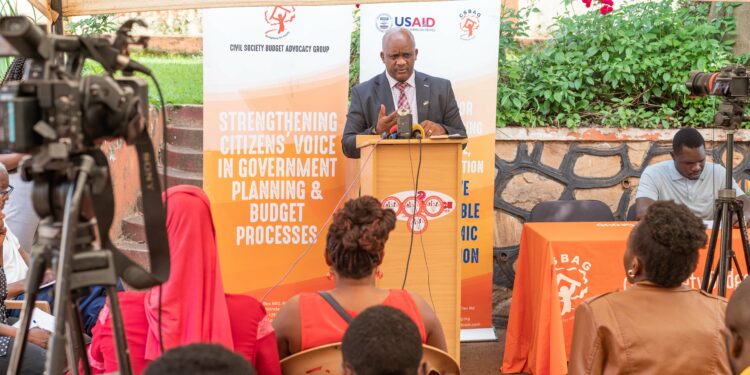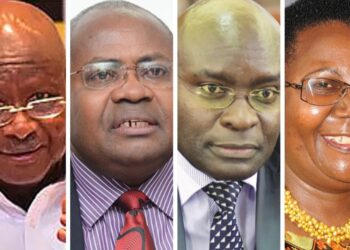In Uganda, supplemental budgets are both a must and a source of concern for the country’s financial planning. Although they were once intended to handle unforeseen costs or shifting priorities during the fiscal year, for the past five years they have grown more frequent and significant, frequently causing major disruptions to the country’s financial process.
According to research made by several country’s economists and Civil Societies such as Uganda Debt Network, the possibility that supplemental budgets will erode economic responsibility and discipline is one of the main problems with them.
Economists allude that there are concerns regarding openness and prudent financial management if these extra funds are seen as a way for the government to get around set budgetary restrictions. Furthermore, Uganda’s general budgeting structure may lose credibility due to the country’s frequent need for supplemental budgets, which could discourage investment and impede economic progress.
For the last three plenaries, Parliament has been grappling with a debate on Supplementary budgets going to words bailing out some companies which some members questioned the processes.
The Civil Society Budget Advocacy Group (CSBAG) boss Julius Mukunda, also noted that supplementary budgets have become abnormal and he proposed to stop calling them so but instead start calling them mini-budgets.
“Our ability to plan for 12 months seems to be extremely limiting that’s why we need to zero to six months. Because by the nature of the supplementary budgets and we have done these analyses you find out that some like per cent can qualify to be in a category of supplementary. And this is abusing the planning and the budgeting processes and this will certainly cause people not to trust because any time they will be expecting a supplementary budget on the same item that was budgeted before,” he said.
He also asserts that the supplementary budget has shifted in terms of classified expenditure. “For the last six years, I think we have seen classified expenditures shooting up like 500 per cent. In 2014/15 it was around Shs400bn and right now I think it’s coming to Shs2.7trillion. The most important issue to note is that a supplementary budget has created an appetite to increase the number of institutions that want classified expenditures. Usually classified expenditure was only a preserve of security services and the State House but now even IGG wants classified expenditure, Uganda police Laboratories, DPP want it to.”
Mr. Mukunda explains that although classified expenditure was passed by Parliament it does not have enough scrutiny and as such it’s now a gate for free money because accountability is given to very few people therefore the public will never know what comes from the classified expenditure.
“I think it’s high time we agree and say if you’re an accounting officer, and unable to budget for simple like salaries, you don’t deserve to be in that chair. This is also like promoting issues when I’m budgeting I should budget for sweet things such as travel, and workshops but for the important critical core of the ministry, I put it aside and wait for a supplementary budget. I hear when the budget is done some people call and book supplementary budget slots!”
He added; “I call this indiscipline because you want a supplementary to come because it’s unavoidable or emergency but none of these expenses currently appear in our supplementary budgets is of an emergency nature.”
According to the Auditor General’s recent report, in most cases, there is no need for a supplementary budget. In the last Financial year, the budget was Shs48trillion and it was revised to Ssh52tillion when supplementary expenses were added but the actual amount of money that was spent was only Shs43trillion which simply shows that there was no need for a supplementary budget because even the original amount was not spent.
What’s the Parliament’s role in scrutinizing these additional budgets?
The lawmaker for the Kira municipality, Ibrahim Ssemujju Nganda, voiced reservations regarding the August House members’ competency during a recent discussion on NBS television. Nganda bemoaned the shallowness of parliamentary discussions, pointing out that several legislators were incapable or hesitant of delving deeply into important matters.
He specifically drew attention to the fact that many members have a propensity to vote in favour of passing each supplemental budget that comes up for debate in Parliament without having in-depth conversations or analyses.
“In our minority report to Parliament, we said all the items that were seeking to fund through supplementary do not qualify under the law, so we helped the government in breaking the law. This is the second supplementary the first one we borrowed Shs3.6trillion to finance. This is all possible because the majority of the House are NRM MPs, they were all silent waiting to vote. These are voting machines like robots,” he said.
“When we are in the committee, they are very intelligent people and able but during the debate, many NRM MPs were silent waiting to vote.”
The quality of parliamentary deliberations is questioned in Uganda, and Nganda’s comments highlight a larger problem with this process. Instead of carefully examining supplemental budgets and what they mean, a lot of legislators seem to be satisfied to simply approve these extra funds.
The efficacy of parliamentary oversight is compromised by this lack of thorough debate, and it also raises questions about the prudent use of public monies.
Furthermore, Nganda’s remarks highlighted the necessity of increased parliamentary participation and accountability. There is a chance that significant financial decisions will be made in a hurry or without giving careful thought to how they will affect the economy in the long run if there is no real discussion and examination. Nganda’s criticism is therefore a call to action for legislators and the general public to demand increased accountability, openness, and efficiency in Uganda’s legislative procedures.
Do you have a story in your community or an opinion to share with us: Email us at editorial@watchdoguganda.com













